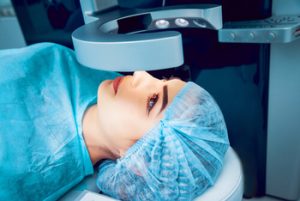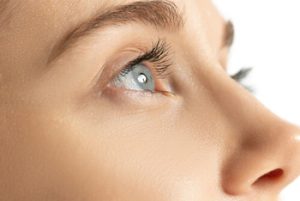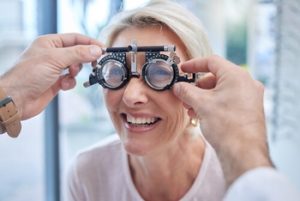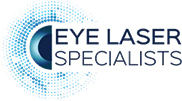If you’re exploring options to restore your vision and enhance your quality of life, lifestyle cataract surgery offers a tailored alternative to traditional cataract treatment. Understanding what to expect during cataract surgery recovery can make the journey feel more comfortable, clear, and even exciting.
In this article, you’ll find everything you need to know about recovering from lifestyle cataract surgery, from what happens immediately after the procedure to when you can return to your regular routines. Let’s take a closer look at how you can support your healing journey with confidence.
What Makes Lifestyle Cataract Surgery Recovery Unique
Lifestyle cataract surgery offers a more tailored recovery experience than traditional cataract surgery.
From selecting your intraocular lens to the visual goals discussed with your eye surgeon, your healing journey is designed to support your individual needs, whether that’s clearer distance vision, reduced reliance on reading glasses, or improved visual comfort for work and leisure.
To help you feel prepared and confident, here’s what to expect at each stage of recovery:
Immediately After Surgery: The First Few Hours
 Your recovery begins the moment the procedure ends. Since your ophthalmologist will typically perform cataract surgery as an outpatient procedure, you’ll rest in the clinic’s recovery area before heading home the same day.
Your recovery begins the moment the procedure ends. Since your ophthalmologist will typically perform cataract surgery as an outpatient procedure, you’ll rest in the clinic’s recovery area before heading home the same day.
During this time:
- A protective eye shield will be placed over your eye.
- A family member or friend should accompany you home.
- Your eye may feel slightly gritty or watery.
- Mild discomfort, tearing, or itchiness is normal.
Your surgeon will provide prescribed eye drops to help prevent infection, reduce inflammation, and support the healing process. Be sure to use them exactly as instructed.
Days 1–3: Early Adjustments
In the first few days, your vision will likely fluctuate as your eye begins to adjust to the new lens implant.
You may:
- Notice vision changes from hour to hour or day to day.
- Experience light sensitivity, halos, or glare, especially at night.
- Feel the need to rest your eyes more often.
Although many people notice clearer vision within a few days, it’s completely normal for your eyesight to feel a little unstable at first. This is part of the brain’s natural adaptation process as it learns to work with the clear artificial lens.
- Avoid strenuous activity and bending over.
- Wear your eye shield while sleeping.
- Refrain from rubbing your eyes, wearing eye makeup, or exposing the eye to water.
Week 1: Establishing A Healing Routine
By the end of the first week, most people feel more comfortable, though you may still experience minor fluctuations in vision.
At this stage:
- Prescribed eye drops remain important; do not stop unless advised.
- Avoid swimming pools, hot tubs, and heavy lifting.
- Continue to be careful when showering and avoid washing your face directly.
- If you work, your surgeon will advise when it’s okay to return.
You’ll likely have a follow-up appointment during this week to ensure your eye pressure is stable and that healing is progressing well.
Weeks 2–4: Vision Stabilisation
The first few weeks are when the majority of healing occurs. Many people begin to feel more confident with their vision, particularly as the lens implant settles.
You might find:
- Your eyes are less sensitive to bright lights.
- Visual clarity improves, though minor haze may still occur occasionally.
- The need for new glasses or visual aids becomes clearer.
Your eye surgeon may assess whether a second surgery is needed for the other eye during this time, especially if both eyes require treatment. Your visual system works best when both eyes are balanced.
After One Month: Back To Normal Activities
Most people are able to resume normal activities after 4 weeks, although your eye surgeon may provide individualised advice depending on your healing progress and lifestyle goals.
 By now, you may:
By now, you may:
- Return to watching TV, reading, and using screens without discomfort.
- Get back to wearing eye makeup.
- Feel confident driving if your vision meets legal driving standards.
- Resume low-impact exercise and regular routines.
- Have a clearer sense of whether you’ll benefit from new glasses or reading glasses for specific tasks.
Ongoing: Monitoring And Long-Term Vision Outcomes
Recovery doesn’t end with clearer vision. Lifestyle cataract surgery also includes longer-term follow-up to help ensure you’re getting the most out of your lens implant and maintaining good eye health.
At this point:
- Regular check-ups with your ophthalmologist will help monitor your vision and eye pressure.
- If you have other eye conditions, they’ll continue to be monitored as part of your care plan.
Remember, every eye heals differently. Your eye surgeon will work with you to adjust care instructions and set expectations based on how your eye responds to the procedure and lens implant.
Will I Still Need Glasses Or Contact Lenses?
This depends on the type of intraocular lens chosen during your lifestyle cataract surgery. Some lenses are designed to reduce or eliminate the need for reading glasses or contact lenses, while others focus on distance clarity.
Your doctor will:
- Assess your goals (e.g., more freedom from glasses).
- Help you decide the right lens for your lifestyle.
- Explain what kind of glasses (if any) you may still require after the healing process.
Seeing Clearly With Your New Lens
While some people report improved vision within a few days, full adaptation to your lens implant may take a few weeks. Factors that can influence your visual experience include:
- Your pre-existing eye conditions.
- Whether you’re having a second surgery for the other eye.
- How quickly your brain adjusts to the clear artificial lens.
Vision typically stabilises in the first few weeks. Once both eyes are treated (if needed), many people enjoy improved clarity and colour perception.
Lifestyle Adjustments That Support Healing
A few simple changes can support your recovery:
Nutrition & Hydration
- Eat a diet rich in leafy greens, antioxidants, and omega-3s.
- Stay well-hydrated to help your body heal.
Lighting & Screens
- Reduce screen brightness to ease strain on your eyes.
- Use sunglasses outdoors to protect against bright lights.
When To Call Your Eye Surgeon
While most patients recover smoothly, you should contact your ophthalmologist immediately if you experience:
- Increasing pain
- Sudden loss of vision
- Persistent redness or swelling
- Discharge or signs of infection
- New vision problems, like flashes or floaters
Early care leads to better outcomes.
Frequently Asked Questions
Is it normal to have blurry vision right after surgery?
Yes, it’s quite common. Your vision may feel blurry, hazy, or fluctuate slightly in the first few days as your eye adjusts to the new lens. This is a normal part of the healing process, and things usually begin to stabilise as the eye heals and the brain adapts to your clear artificial lens.
How long do I need to use eye drops?
You’ll most likely be advised to use prescribed eye drops, including anti-inflammatory eye drops, for a few weeks following surgery. Be sure to follow your surgeon’s instructions carefully and complete the full course, even if your eye feels better sooner.
Can cataracts return after lifestyle cataract surgery?
Once your cloudy natural lens is replaced with a clear artificial lens, that cataract cannot return. However, a common condition called posterior capsule opacification (PCO) can occur in some people. It causes the capsule behind your lens implant to become cloudy, affecting your vision. If this happens, your ophthalmologist will ensure you restore clarity.
Conclusion
Lifestyle cataract surgery is more than just removing a cloudy lens; it’s a personalised path towards clearer, more functional vision. With proper care, attention, and guidance, most patients experience a smoother healing process and outcomes aligned with their goals.
 Take each step at your own pace, follow your surgeon’s advice, and know that your vision can improve meaningfully. Your comfort, confidence, and long-term eye health matter.
Take each step at your own pace, follow your surgeon’s advice, and know that your vision can improve meaningfully. Your comfort, confidence, and long-term eye health matter.
If you’re curious about whether lifestyle cataract surgery is right for you, speak with your eye care provider. They’ll walk you through your options, explain what to expect, and support you at every stage of your journey.
If you’re considering lifestyle cataract surgery or simply want to better understand your options, we’re here to help. Our friendly and experienced team is happy to answer your questions, guide you through the process, and support you every step of the way.
Contact Eye Laser Specialists today at (03) 9070 0910 or (03) 9070 5788 to book a consultation and discover whether lifestyle cataract surgery could be right for you.
Note: Any surgical or invasive procedure carries risks. Before proceeding, you should seek a second opinion from an appropriately qualified health practitioner.
References
Herndon J. What to Expect During Cataract Surgery Recovery [Internet]. Healthline. 2021 [cited 2025 Jul 25]. Available from: https://www.healthline.com/health/eye-health/cataract-surgery-recovery
Sissons B. What to Do and What to Avoid After Cataract Surgery [Internet]. Medical News Today. 2025 [cited 2025 Jul 25]. Available from: https://www.medicalnewstoday.com/articles/do-and-don-t-after-cataract-surgery
Lipner M. Pseudophakia to Treat Cataracts [Internet]. Verywell Health. 2025 [cited 2025 Jul 25]. Available from: https://www.verywellhealth.com/pseudophakia-5116181




